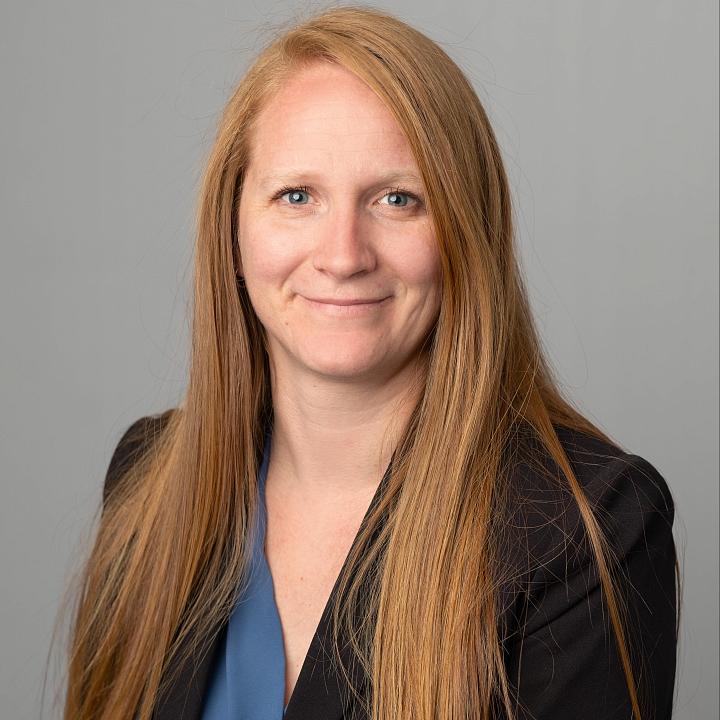
Nuclear Medicine Fellowship
Jump to
Program Overview and Scope of Training
Our one-year ACGME Nuclear Radiology Fellowship at the University of Utah Health, Department of Radiology and Imaging Sciences provides additional training to diagnostic radiologists in nuclear medicine and molecular imaging and radiopharmaceutical therapies. The department has two state-of-the-art clinical PET/CT scanners and one research scanner. During the fellowship trainees will gain vast experience in general nuclear medicine imaging and in the various applications of PET/CT and SPECT/CT imaging, including the areas of nuclear oncology, cardiology and neurology. Fellows will also have the opportunity to work with the latest theranostic agents and will have the opportunity to participate in standard therapies for benign and malignant conditions.
In addition to broad clinical exposure, fellows participate in the education of our residents and medical students during educational conferences, journal clubs and case correlation sessions. They also work closely with residents that are on the nuclear medicine service. The goal of the fellowship is to train outstanding clinicians, educators and researchers.
We encourage all eligible program graduates to take the American Board of Nuclear Medicine (ABNM) certifying exam.
Academic Pursuits
Academic time is provided to facilitate preparation for multi-disciplinary conferences, resident conferences, and inter-departmental teaching conferences.
Fellows must engage in a scholarly project that demonstrates their competence in the fundamentals of research by the completion of and/or participation in one of the following projects, but not limited to:
- Clinical research
- Analysis of disease processes, imaging techniques, or practice management issues
- Laboratory research
The results of such projects should be disseminated in the academic community by either submission for publication within peer-reviewed journals or online educational resource, or presentation at departmental, institutional, local, regional, national, or international meetings. Funds are available to sponsor attendance at a meeting if a presentation is accepted.
Elective Time
Fellows are encouraged to pursue electives with other sections within the department. Time available is dependent on the availability of the accepting service.
Mission & Aims
Mission Statement
The Nuclear Radiology Fellowship Program is dedicated to training future leaders and expert radiologists in nuclear medicine. Through comprehensive education, hands-on clinical experience, and advanced imaging techniques like PET/CT and SPECT/CT, we equip fellows with the expertise needed for excellence in patient care, diagnosis, and treatment. Our mission is to foster clinical excellence, innovation, and research while upholding the highest standards of patient safety and ethical practice in all aspects of nuclear medicine.
Program Aims
Comprehensive Training: To provide fellows with in-depth training in nuclear radiology, equipping them with the expertise to accurately diagnose and manage complex diseases through advanced imaging techniques, including PET/CT and nuclear medicine, while adequately preparing them for clinical practice and success in the ABNM/ABR CAQ exams.
Research and Innovation: To foster a culture of research and innovation in nuclear radiology, encouraging fellows to contribute to advancements in imaging technology and patient care while maintaining the highest standards of safety, professionalism, and ethical practice.
Eligibility
All required clinical education for entry into ACGME-accredited fellowship programs must be completed in an ACGME-accredited residency program, an AOA-approved residency program, a program with ACGME International (ACGME-I) Advanced Specialty Accreditation, or a Royal College of Physicians and Surgeons of Canada (RCPSC)-accredited or College of Family Physicians o Canada (CFPC)-accredited residency program located in Canada
Prerequisite experience for entry into the fellowship program should include the satisfactory completion of a diagnostic radiology or interventional radiology residency program that satisfies the requirements in the above paragraph.
Our selection committee places significant emphasis on key factors when reviewing applications, including USMLE results—such as passing Step 1 on the first attempt and a Step 2 score of 250 or higher—along with research experience, volunteer work, leadership qualities, potential for an academic career, exceptional letters of recommendation, formative life experiences, and personal characteristics that demonstrate determination, a growth mindset, maturity, strong communication skills, and adaptability.
While we believe these characteristics make for an excellent fellowship candidate, none of these criteria are requirements. We believe in reviewing applications holistically as applicants may excel in some particular areas.
International Medical Graduates
In addition to the above, International Medical Graduates must meet the following eligibility criteria:
- Must be ECFMG certified before training begins on July 1
- If needed, the candidate must have a clinical J-1 visa before training begins on July 1
- Must meet the GME and Utah licensing requirements
For candidates interested in completing the ABR Alternate Pathway Program, please visit our Alternate Pathway page for more information.
Application Overview & Timeline
We have pledged to follow the fellowship embargo program proposed by the Society of Chairs of Academic Radiology Departments (SCARD). We are committed to a fair fellowship application process that allows residents the time to make an informed decision about their sub-specialty training. The preferred application deadline for our program is November 10th. Applications submitted after this date may be considered, but interview invitations will be subject to availability. Our interviews are virtual, typically held January.
Application Overview & Timeline
- November 1 – First day to accept applications
- November 1 – Open house webinars can begin
- January 13 – Earliest date for hosting interviews
- January 27 – First day offers can be made, candidates can accept offers 12 PM EST
- applicants have until 12 PM EST on January 29th to accept or decline any offer made prior to January 29th. For offers extended on or after January 29th, applicants have a one-day grace period to accept or decline.
- March 31 – Last date for hosting interviews
Sample Interview Day Schedule
| 10:50 | Program Director Welcome |
| 11:10-12:30 | Faculty Interviews |
| 12:30 | Interview Day Conclusion |
How to Apply
Nuclear Medicine Application Form
Submit Letters of Recommendation here
Your application should include:
- Curriculum Vitae
- One-Page Personal Statement
- Dean’s Letter (MSPE)
- USMLE Scores for steps 1, 2 and 3. COMLEX scores may be substituted for USMLE
- Medical School Transcripts
- Personal Photograph
- Three Letters of Recommendation, one of which must be from your current program director
Optional documents
- Medical School Diploma
International medical graduates must also include the following:
- Valid ECFMG Certificate with Clinical Skills Assessment Certification
- Evidence of previous training in the United States (if applicable)
Policies, Requirements, and Agreements
The Graduate Medical Education (GME) policies apply to all residents and fellows at the University of Utah.
Applicants are specifically encouraged to review the following GME policies:
- Eligibility and Credentialing
- Specific USMLE requirements
- Medical License, Controlled Substance, DEA, NPI
- Liability Coverage
- IMG Eligibility and Exams
- All trainees in clinical programs who require visa sponsorship must obtain a J-1 clinical visa
The Nuclear Radiology policies are maintained on an internal University server. All current fellows and faculty have access to these policies at all times. The selected policies listed below may be of particular interest to applicants:
Why Utah?
From sheer beauty to being the right size to the global influence of our health system, Utah has way more to offer than people know.
Living in Utah
From restaurants and museums to sports and outdoor events, check out our definitive guide to living in Utah!
Verifications
We use the standardized “Verification of Graduate Medical Education Training” (VGMET) form released in 2018 by the ACGME, AHA, NAMSS, and OPDA. If you have a customized form, require program director signature and/or our institutional seal please select the appropriate option and email us the form.
A charge of $25.00 - $55.00 will be assessed for each comprehensive letter of verification, payable via credit card using our on-line payment portal (or by check, if submitting the request by US mail). This charge is in place to offset the fees we commonly incur while credentialing our own incoming residents and fellows. We apologize for the inconvenience.
Once the request has been submitted via the link below, please e-mail a completed Authorization for Release of Information form to RadiologyResidency@utah.edu.
When we have received the payment and trainee authorization, you will receive the completed verification of training form via e-mail. If you have further questions, please call 801-581-2868.
The University of Utah School of Medicine does not discriminate on the basis of gender, sexual orientation, race, age, religion, color, national origin, disability, or veteran’s status. In accordance with the requirements of The Americans with Disabilities Act (ADA) and Section 504 of the Rehabilitation Act of 1973, as amended, (Section 504), the University of Utah provides reasonable accommodations to qualified individuals with disabilities, so that they may fully participate in its academic programs, employment opportunities, medical services, programs, and events.



